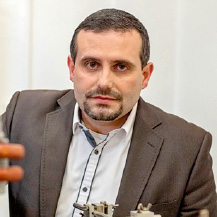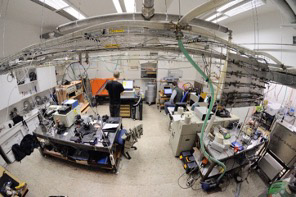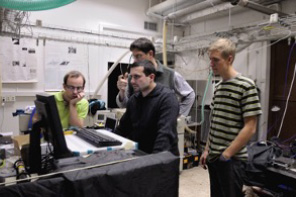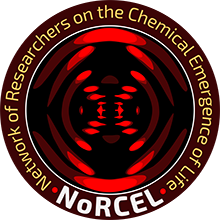
Ferus Martin
J. Heyrovský Institute of Physical Chemistry, Czech Academy of Sciences, Prague, Czech Republic
Department of Spectroscopy
 Martin Ferus, graduated from Charles University in Prague in the field of physical chemistry in 2012. He is currently head of Department of Spectroscopy at J. Heyrovský Institute of Physical Chemistry, Czech Academy of Sciences and his research is focussed mainly on applied high resolution molecular and atomic spectroscopy in high energy chemistry, physics and astrochemistry. However, chemical and prebiotic evolution of terrestrial planets in our Solar System and beyond represent the flagship research topic of his research group. His work in this field has been awarded the Josef Hlávka Foundation Award (2015), the Otto Wichterle Award (2016), the award of the Czech Learned Society (2016), the Czech Science Foundation President's Award (2020) and the Werner von Siemens Award (2021). Martin Ferus was also nominated by the Czech National Committee as a Czech delegate in the International Astronomical Union. He is the Czech Co-PI of the Ariel space telescope mission. See also: https://www.jh-inst.cas.cz/jh_employee/ferus
Martin Ferus, graduated from Charles University in Prague in the field of physical chemistry in 2012. He is currently head of Department of Spectroscopy at J. Heyrovský Institute of Physical Chemistry, Czech Academy of Sciences and his research is focussed mainly on applied high resolution molecular and atomic spectroscopy in high energy chemistry, physics and astrochemistry. However, chemical and prebiotic evolution of terrestrial planets in our Solar System and beyond represent the flagship research topic of his research group. His work in this field has been awarded the Josef Hlávka Foundation Award (2015), the Otto Wichterle Award (2016), the award of the Czech Learned Society (2016), the Czech Science Foundation President's Award (2020) and the Werner von Siemens Award (2021). Martin Ferus was also nominated by the Czech National Committee as a Czech delegate in the International Astronomical Union. He is the Czech Co-PI of the Ariel space telescope mission. See also: https://www.jh-inst.cas.cz/jh_employee/ferus
 The Department of Spectroscopy was established in 1963 and currently is a leading Czech centre of applied and fundamental research into spectroscopic techniques used for basic science and in the engineering and security industries. This includes the development of sensitive gas-phase sensors and their arrays, the exploration of new high-tech solid-state materials for use in high-power light sources, the characterization of new materials, the generation of reactive species (such as singlet oxygen) and the development of new analytical techniques in forensics. We also explore fundamental processes of plasma generated by laser sparks or combustion flames with the development of new laser-spectroscopic diagnostic tools for monitoring combustion intermediates, minor products of the pyrolysis of oxygenated fuels and nitrogen oxide precursors. Our flagship research is oriented towards hot topics in contemporary science, with contributions made towards laboratory astrochemistry and astrophysics of exoplanets and of Earth's chemical evolution.
The Department of Spectroscopy was established in 1963 and currently is a leading Czech centre of applied and fundamental research into spectroscopic techniques used for basic science and in the engineering and security industries. This includes the development of sensitive gas-phase sensors and their arrays, the exploration of new high-tech solid-state materials for use in high-power light sources, the characterization of new materials, the generation of reactive species (such as singlet oxygen) and the development of new analytical techniques in forensics. We also explore fundamental processes of plasma generated by laser sparks or combustion flames with the development of new laser-spectroscopic diagnostic tools for monitoring combustion intermediates, minor products of the pyrolysis of oxygenated fuels and nitrogen oxide precursors. Our flagship research is oriented towards hot topics in contemporary science, with contributions made towards laboratory astrochemistry and astrophysics of exoplanets and of Earth's chemical evolution.

